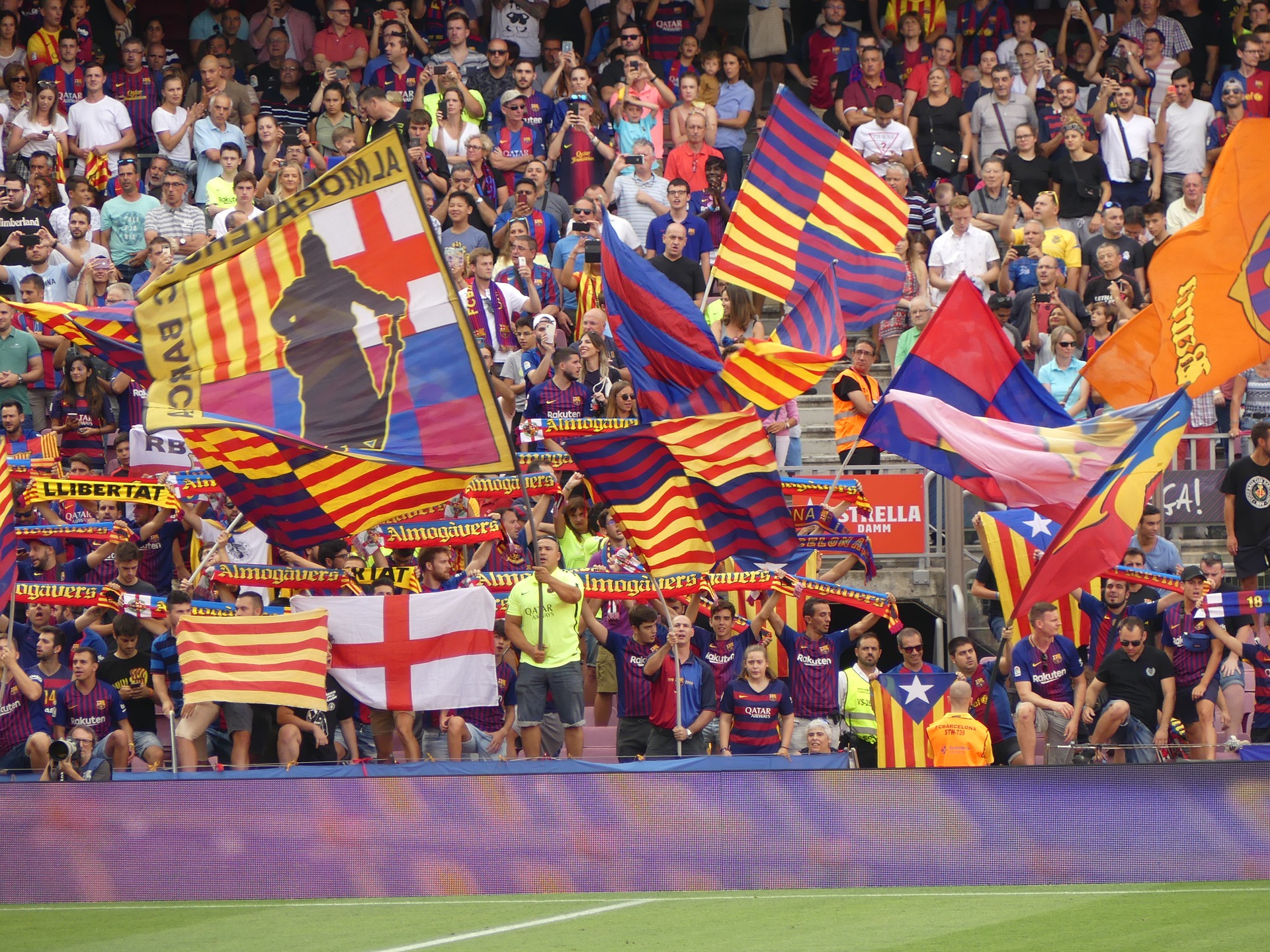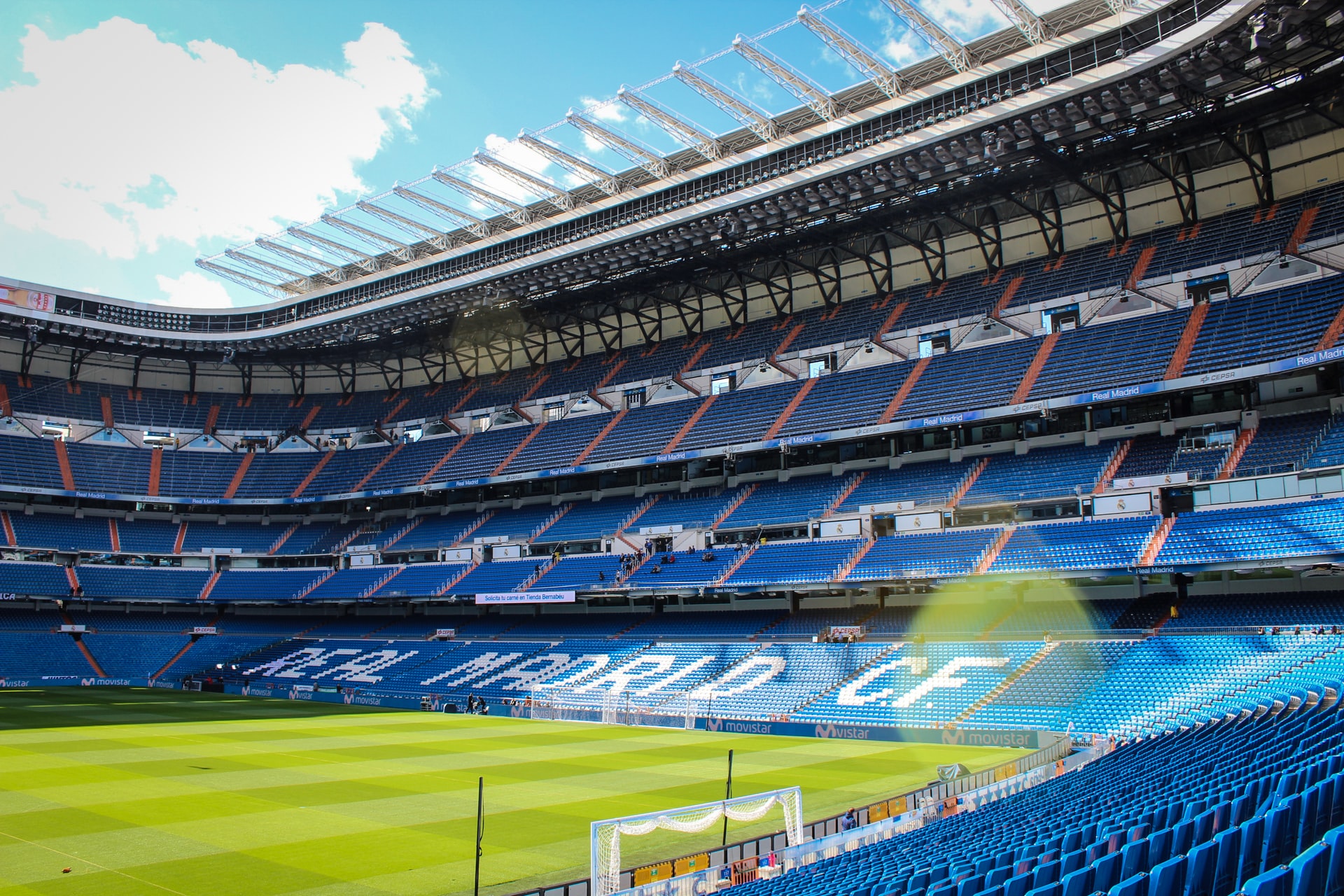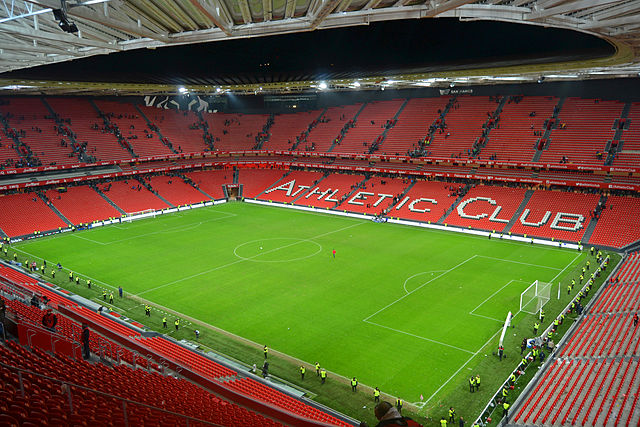Valencia CF was founded in 1919 by people involved in the business of exporting citrus fruits from the region. They played their first competitive match in 1921 at the Algirós stadium before moving to their current home of Mestalla in 1923. Initially the club played in a regional league before being admitted into the newly formed Spanish Second Division for the 1928-29 season. Three years later they were promoted to the top tier of Spanish football. Valencia football stadium tours are a great way for visitors to the city to learn about the history of one of Spain’s greatest clubs.
In 1941 Valencia won their first Copa del Rey title followed by their first La Liga title in 1942. They established themselves as one of Spain’s top clubs in the 1940s and 1950s under the management of Jacinto Quincoces. The club endured a dry spell during the 1960s and 1970s but returned to prominence after the signing of Mario Kempes in 1976. Kempes helped Valencia win the Copa del Rey in 1979 and the La Liga title in 1971-72.

The 1980s saw Valencia win two more Copas del Rey as well as the European Cup Winners’ Cup in 1980. In the 1990s, they added another Cup title and celebrated their centenary in 1999 by qualifying for the Champions League for the first time. They won La Liga in 2001-02 and 2003-04 under Rafael Benítez and went on to win the UEFA Cup and Super Cup and reach two successive Champions’ League finals.
In the 2010s Valencia continued to consistently qualify for the Champions League but struggled to advance past the round of 16. In 2014 the club was taken over by Singaporean businessman Peter Lim who has overseen a long period of instability which has seen many managers come and go. Whilst remaining competitive the club has never been close to the heights of the early 2000s and has just a single Copa del Rey title from the 2018-19 season to show for their efforts.
Valencia Football Stadiums (1919-2024)
Algirós Stadium
Valencia CF played at the Algirós Stadium from 1919-1923 which had an estimated capacity of around 5,000 spectators.

Mestalla Stadium
The home of Valencia CF hosted its first match in 1923 against Levante FC in front of 17,000 spectators seated in wooden stands. The first major upgrade of the Campo de Mestalla came in 1934 when a second tier was added, raising capacity to 45,000. This figure reached 70,000 in the 1990s but was reduced to 49,500 after the stadium’s most recent renovation was completed in 2011. After 100 years of history, Mestalla’s days may be numbered but its rich history will live forever in the annals of Valencia CF.
Nou Mestalla Stadium
Construction of this new 75,000 seater stadium, which was meant to replace Mestalla, was stopped in 2009 due to Spain’s financial crisis and Valencia CF’s lack of funds. Today, this half-built stadium stands as a monument to the club’s failings under the current ownership. The club did announce plans to restart construction of the new Valencia football stadium with its capacity reduced to just 49,000 seats but no such progress has taken place. At the moment it is impossible to know when or if Nou Mestalla will ever be completed. In the meantime Valencia CF continue to play their home matches at the historic Mestalla stadium.
Valencia Football Stadium Tours
The Mestalla Forever Tour is a fascinating stadium tour of Valencia CF’s historic Mestalla Stadium. The tour begins outside the stadium with guides providing an overview of Mestalla’s design and history. Visitors then enter the stadium through the players’ tunnel to emerge on the side of the pitch. The tour then proceeds up to the press boxes, VIP suites and the zone where post-match interviews are held. You also get a glimpse of the changing rooms but these remain off-limits to the general public.
Fans can then ascend into the stands for panoramic views of the pitch and end the Mestalla Forever Tour at the Valencia CF museum which is filled with historic club memorabilia. The standard tours last around an hour and fifteen minutes with tickets needing pre-booking online. The Mestalla stadium tour is a great way to learn about the arena’s illustrious past and is highly recommended for any football supporter visiting the city.
Valencia Football Fixtures 2024-25
| Provisional Date | Home Team | Away Team | Venue |
|---|---|---|---|
| August 17th | Valencia CF | FC Barcelona | Camp de Mestalla |
| August 23rd | Celta Vigo | Valencia CF | Estadio ABANCA Balaídos |
| August 28th | Athletic Club | Valencia CF | Estadio San Mamés |
| August 31st | Valencia CF | Villarreal CF | Camp de Mestalla |
| September 15th | Atlético de Madrid | Valencia CF | Civitas Metropolitano |
| September 22nd | Valencia CF | Girona FC | Camp de Mestalla |
| September 25th | Valencia CF | CA Osasuna | Camp de Mestalla |
| September 29th | Real Sociedad | Valencia CF | Reale Arena |
| October 6th | CD Leganés | Valencia CF | Estadio Municipal Butarque |
| October 20th | Valencia CF | UD Las Palmas | Camp de Mestalla |
| October 27th | Getafe CF | Valencia CF | Coliseum |
| November 3rd | Valencia CF | Real Madrid | Camp de Mestalla |
| November 10th | RCD Espanyol | Valencia CF | RCDE Stadium |
| November 24th | Valencia CF | Real Betis | Camp de Mestalla |
| December 1st | RCD Mallorca | Valencia CF | Estadi Mallorca Son Moix |
| December 8th | Valencia CF | Rayo Vallecano | Camp de Mestalla |
| December 15th | Real Valladolid CF | Valencia CF | Estadio Municipal José Zorrilla |
| December 22nd | Valencia CF | Deportivo Alavés | Camp de Mestalla |
| January 12th | Sevilla FC | Valencia CF | Ramón Sánchez-Pizjuán |
| January 19th | Valencia CF | Real Sociedad | Camp de Mestalla |
| January 26th | FC Barcelona | Valencia CF | Estadi Olímpic Lluís Companys |
| February 2nd | Valencia CF | Celta Vigo | Camp de Mestalla |
| February 9th | Valencia CF | CD Leganés | Camp de Mestalla |
| February 16th | Villarreal CF | Valencia CF | Estadio de la Cerámica |
| February 23rd | Valencia CF | Atlético de Madrid | Camp de Mestalla |
| March 2nd | CA Osasuna | Valencia CF | Estadio El Sadar |
| March 9th | Valencia CF | Real Valladolid CF | Camp de Mestalla |
| March 16th | Girona FC | Valencia CF | Estadio Municipal de Montilivi |
| March 30th | Valencia CF | RCD Mallorca | Camp de Mestalla |
| April 6th | Real Madrid | Valencia CF | Estadio Santiago Bernabéu |
| April 13th | Valencia CF | Sevilla FC | Camp de Mestalla |
| April 20th | Rayo Vallecano | Valencia CF | Estadio de Vallecas |
| April 23rd | Valencia CF | RCD Espanyol | Camp de Mestalla |
| May 4th | UD Las Palmas | Valencia CF | Estadio Gran Canaria |
| May 11th | Valencia CF | Getafe CF | Camp de Mestalla |
| May 14th | Deportivo Alavés | Valencia CF | Mendizorroza |
| May 18th | Valencia CF | Athletic Club | Camp de Mestalla |
| May 25th | Real Betis | Valencia CF | Estadio Benito Villamarín |
How to Get Valencia Football Tickets
You can order Valencia football tickets online from the Valencia CF official website. There are usually tickets available for most matches but they tend to be sold out for games against Real Madrid and FC Barcelona. The website is fairly self-explanatory, simply select “Entradas” next to the game you want to attend then change the language to English at the top of the page. You can then select your preferred seats which are shown in green on the website view.
You then have 10 minutes to complete the booking. When completing the booking process you will see a box asking for a DNI. This is a Spanish identification number. Fans from other countries should simply enter their passport number as identification. Once the booking is complete the tickets will be sent to you by email and should be printed out before going to the stadium.
Valencia FC Kick-Off Times
Unlike the other major football associations of Europe the Spanish FA only announce the confirmed day and time of matches about 7 to 10 days before they are due to be played. Of course this can cause some concern for fans who are taking a city break to Valencia but in most cases this is rarely an issue provided that you’re in Valencia from Saturday afternoon until Monday. Once official confirmation of kick-off times is announced at the Spanish FA it is published on the Valencia CF website.
Valencia Football Stadium Guide
Getting to the Mestalla Stadium
Known as the Campo de Mestalla, the Valencia football stadium is very close to the city centre. You can take a taxi or number 10 bus from the Plaza del Ayuntamiento to Aragón which is very close to the stadium. Alternatively, use the small underground system departing from Xàtiva (outside the main Estació del Nord) and take the green line number 5 to the stop nearest the stadium at Aragón.
Mestalla Stadium Plan
This map of Valencia’s football stadium indicates the seating areas which you can select when ordering your Valencia CF tickets.




